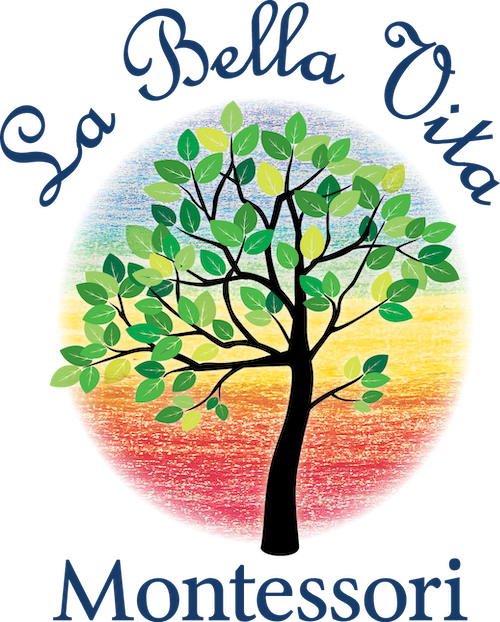Maria Montessori’s view on education was to teach all branches of learning as part of an interwoven network. Therefore, music is not only taught as a subject but as an integral part of the daily activities of the class. Music is a universal language, loved by children and adults all over the world. Children have an uninhibited inclination to move, dance, and make music, as well as an innate capacity to appreciate all types of music. Musical activities are included in the daily life of the Montessori classroom and respected as much as other curriculum subjects. Research shows that music is fundamental in early childhood education, helping children to develop in various ways, including problem-solving and logic skills.
Our Music Program at La Bella Vita Montessori caters to our Early Childhood and Elementary Programs. Our professionally trained music teacher provides engaging, developmentally appropriate music classes that offer integrated sequences of activities to set the stage for optimal, multi-sensory learning. Each weekly lesson is designed to boost school readiness, nurture multiple areas of a child’s development, and tap into a variety of individual learning styles. Children are taught instrument recognition, rhythm and movement, music from around the world, themed music (Black History Month, Holidays, etc.)
Not only do we bring in a music teacher to give weekly classes, it’s also essential that classroom teachers integrate music into everyday activities through song, movement, instruments, music appreciation, the Montessori Bells, and Walking on the Line to music. When a child first enters the classroom, they join in small groups or line time to sing nursery rhymes and well-known jingles. Children love repetition, therefore they enjoy singing their favorite songs that they are most familiar with over and over again. To add to the interest, our directresses introduce new songs that are based around the theme of the classroom at that time of year. During our line time, it works well to start the day’s activities with music as it relaxes the child and creates a good frame of mind for concentration in the activities that follow. Music is also studied in the classroom by reading books about different musicians and composers, play classical and world music during the work period, give children the opportunity to hear instruments played, etc.
In the classroom, children up to the age of six are in the sensorial stage of development. Activities are designed to use the potential of this stage to its optimum. For the refinement of the body movements, activities centered around walking to music on the line, for balance, are introduced. These activities gradually extend to different rhythmic movements of the body to music with a definite tempo. For the refinement of the auditory sense of pitch, the children are introduced to exercises with the bells, which prepare them for the music program designed to teach notation. Ongoing throughout are singing activities which emphasize rhythm when the children clap, tap, nod, etc. Language acquisition is enhanced as children learn songs with varied vocabulary, meter, and rhyme. Cultural lessons are enriched with songs about continents, planets, respect for Earth, and much more. Music gives children opportunities to perfect their movements and refine coordination as well as provide children with ways to express their own unique spirits.

